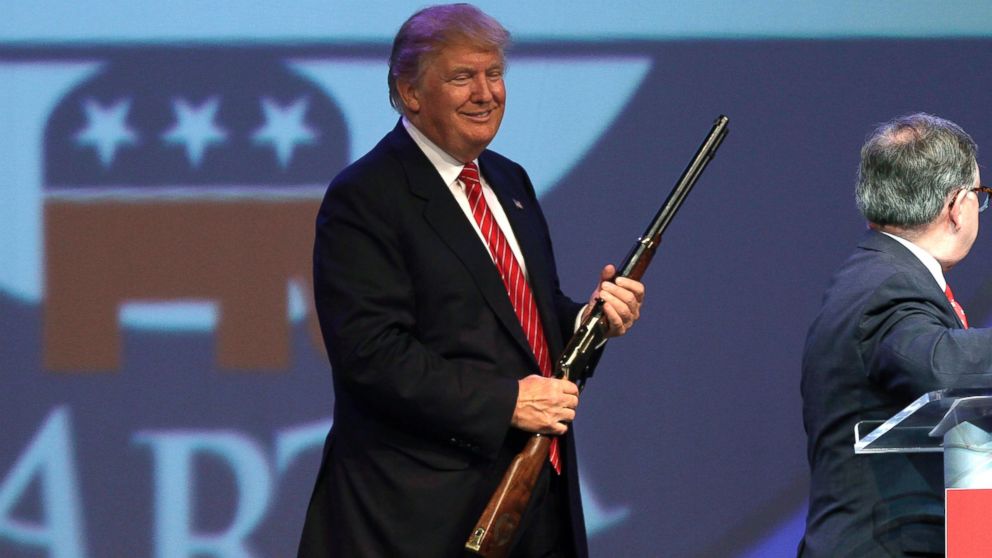
In light of two shootings over the weekend by left-wing extremists, President Donald J. Trump is exploring executive action on gun control designed to make it more difficult for mass shootings to happen. However, like all gun control measures, the proposed changes will do nothing to curb violence and will only serve to limit Americans’ Second Amendment rights.
Not content to work through the legislature, Trump and the U.S. Attorney General Bill Barr claim to be “resolved” to take executive action after the shootings in El Paso, Texas, and Dayton, Ohio.
This isn’t the first time that Trump has circumvented Congress. The President issued an executive order last year to ban so-called “bump-stocks,” which allow semi-auto rifles to fire at a higher (and more uncontrollable) rate.
It is not clear exactly what executive actions Trump may take but the fear is that he could draw a very long list of suggestions posited by current 2020 Democratic presidential candidates. Options include enforcing mandatory background checks for all gun sales (not just those from FFL dealers), establishing federal cooling-off periods for gun buyers and banning those convicted of domestic abuse to purchase firearms (they often already are). Trump could also reinstate a regulation he repealed in February 2017 that was originally intended to prevent mentally ill Americans from acquiring firearms.
It is unclear what, if any, consequences these policies would have had for the two shootings over the weekend, had they been implemented.
The most immediate negative consequences of the most likely regulations to be considered by Trump include so-called Red Flag Laws.
Trump stated, “We must make sure that those judged to pose a grave risk to public safety do not have access to firearms and that if they do, those firearms can be taken through rapid due process…That is why I have called for red flag laws, also known as extreme risk protection orders.”
Under Red Flag Laws, Citizens don’t have to commit any crimes to have their gun rights taken. Law enforcement—or in some states, family members or concerned neighbors—can petition to a judge to have one’s gun rights taken. In most cases, Citizens don’t have to present to defend themselves for the right to be removed.
The danger to gun liberties from Red Flag Laws is that exactly what is a Red Flag is neither known nor well-defined. In theory, even Christianity—should the extreme leftwing of the Democratic Party win in 2020—could be listed as a Red Flag, particularly as liberals are calling “Christian Nationalism” a foreboding omen of domestic terrorism.
For why Christians should resist gun control laws, read Why Christians Don’t (and Won’t) Support Gun Control, Why Gun Ownership is Biblical and Good, and Why Some People Need a Good Killing: The Biblical Right to Self Defense.










